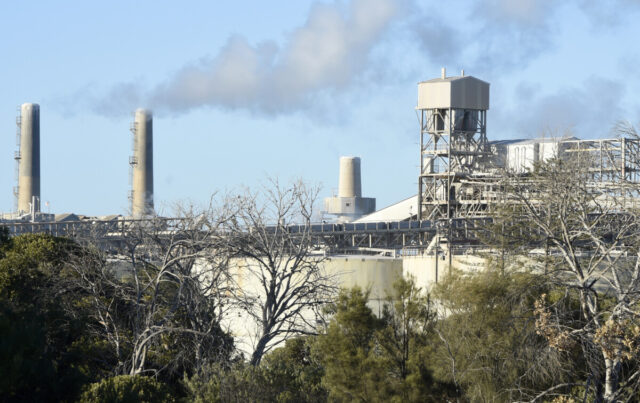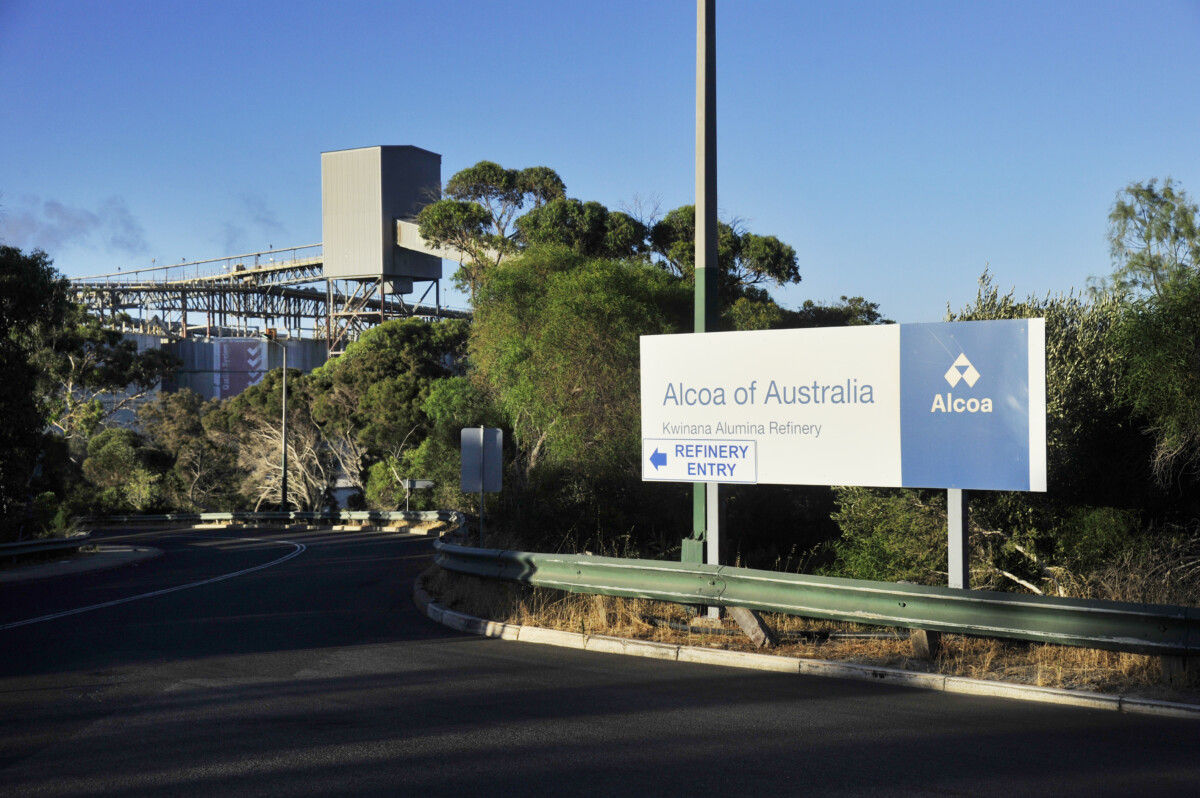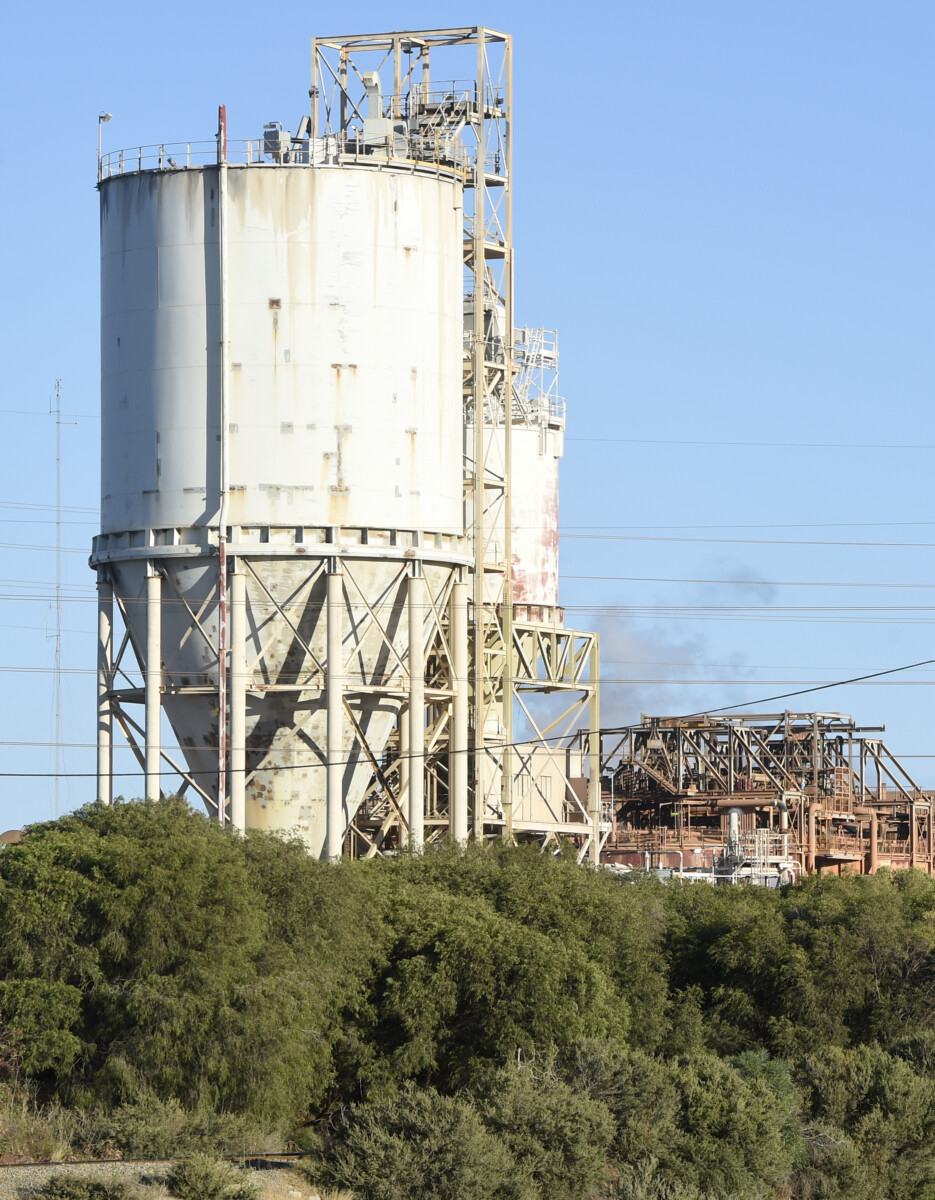
Around 750 workers will lose their jobs at the Kwinana refinery after it stops producing alumina from July this year.
On Tuesday Alcoa announced it plans to cease production at its Kwinana refinery, with the curtailment process beginning in a few months’ time.
Alcoa’s Executive Vice President and Chief Operations Officer Matt Reed said the decision to stop production at the 60-year-old facility is based on a variety of factors, including its age, scale, operating costs and current bauxite grades, in addition to current market conditions.
The company has said the plant has been operating at 80 percent of its capacity since January last year and recorded a net loss (pre-tax and noncontrolling interest) of approximately $130 million in 2023.
“Today’s curtailment decision comes only after thorough and careful deliberation, and we acknowledge that this action will impact workers, business partners, and the community,” Mr Reed said.
“We deeply appreciate the commitment and support of our many loyal employees, contractors, and suppliers at our Kwinana refinery, which has made a major contribution to Western Australia’s economic development over the last 60 years of continual operation.”

There will be a phased reduction of the workforce; only 250 of the plant’s 800 workers will have a job in the new financial year.
The refinery will stop producing alumina by the end of June. Certain processes will continue until mid-2025, when a further 200 jobs will be made redundant.
The state government has put the number of affected workers closer to 1000, with up to 250 contractors also affected by the decision to close.
“We will work closely with our employees to provide support with transitioning to other opportunities,” Mr Reed said. “This includes potential redeployment within our business or assistance to facilitate employment at other workplaces.”
Local federal member Andrew Hastie has said he is determined to fight for local jobs, with the Kwinana closure possibly having serious implications for families in his electorate of Canning, which is home to Alcoa’s biggest refinery in Pinjarra.
“The closure of the Kwinana refinery sends Australian industry and jobs to places like China and Saudi Arabia—just as we need to be growing our industrial base for strategic reasons,” he said.
Mr Hastie said he was concerned about the potential for more job losses and called on Alcoa to assure the future of the Pinjarra and Wagerup refineries.
“While there has been no speculation about the Pinjarra or Wagerup refineries at this stage, the closure of the Kwinana refinery could have a ripple effect,” he said.
“We already know the Labor government’s so-called ‘climate safeguarding mechanism’ is making it prohibitively expensive to refine bauxite into alumina.
“Of course, that will have an impact on local jobs. Companies like Alcoa won’t think twice about shipping Australian jobs to China or the Middle East if it’s cheaper.
“The federal government has to step up here.”
Mr Hastie called on Alcoa to offer assurances to its workers at Pinjarra and Wagerup and rule out further job losses.

The company has said in a statement that “production at the Pinjarra and Wagerup refineries is not expected to be impacted by the curtailment at Kwinana”.
“The refinery and associated residue storage facilities will continue to be actively managed. Alcoa’s port facilities located alongside the refinery will continue to operate to import raw materials and export alumina produced at the Company’s Pinjarra Alumina Refinery,” Alcoa’s statement said.

Mr Hastie emphasised the Kwinana refinery’s significance to the region and pledged his commitment to ensuring its future.
“Australian jobs are at stake here,” he said.
“Alcoa workers and the people of Canning know I’m prepared to go in hard on their behalf when their jobs are on the line and this is no exception.”
Federal Minister for Resources and Northern Australia Madeleine King has expressed disappointment over Alcoa’s decision.
“As the local member representing many of the workers at Alcoa Kwinana, I am extremely disappointed and my thoughts are with those workers and their families as they are the people most severely affected by this decision,” Minister King said.
“I have been assured by Alcoa that the curtailment of production at the Kwinana refinery will not affect the broader supply chain of alumina, which is essential for our future transition towards net zero emissions.
“The Australian Government has classified High Purity Alumina as a critical mineral and aluminium as a strategic material.”
Premier Roger Cook has also expressed his disappointment at Alcoa’s decision.
“Today will be a difficult day for workers in my local community of Kwinana,” he said on Tuesday.
“This is a very disappointing outcome, and Alcoa needs to do everything it can to support its workforce through this transition.
“My government will step up to provide supports for local workers to retrain, reskill and look for new career opportunities in the local area.
“Kwinana is the industrial heart of Perth, and has a bright future with new job-creating industrial projects emerging on the strip – keeping Kwinana strong for generations to come.
“We will continue to work with Alcoa to ensure its other operations in Western Australia – including its Pinjarra and Wagerup refineries – support local jobs into the future.”
Alcoa’s decision comes only weeks after the premier pre-emptively gave Alcoa an exemption to continue mining in spite of an EPA determination to assess the company’s activities in the Darling Ranges, which would have effectively put a stop-work order in place.
The premier’s justification for the exemption was to shore up local jobs.
“Every project in WA should be subject to the same rigorous environmental approval system, but legacy issues mean Alcoa is yet to move to contemporary approvals,” Premier Cook said on December 14.
“Alcoa is a major employer and contributes significantly to our regional economies, so it’s important we safeguard local jobs while this transition to a modern approvals framework takes place.”













